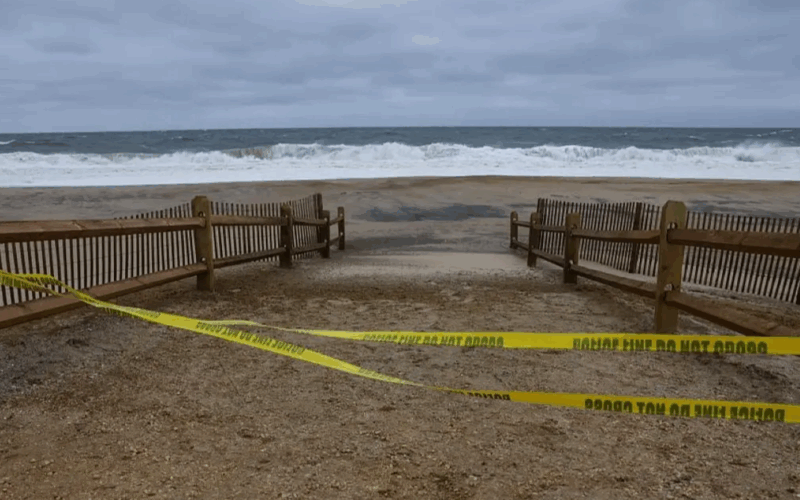East Coast, USA – As Labor Day weekend approaches, beachgoers along the East Coast are being cautioned with fecal contamination warnings due to elevated bacteria levels across multiple coastal sites from Maine to Florida. These warnings highlight potential health risks including nausea and skin rashes for swimmers, prompting concern among vacationers and environmental advocates alike.
Fecal Contamination Impacting Popular Beaches
Recent water quality alerts have led to closures at some of the East Coast’s most frequented beaches, including Keyes Memorial Beach in Massachusetts’ Cape Cod village of Hyannis and Benjamin’s Beach on Long Island in Bay Shore, New York. These advisories stem from findings that bacteria levels in the water exceed the threshold standards established by the U.S. Environmental Protection Agency (EPA), signaling unsafe swimming conditions.
- According to a report by Environment America, fecal bacteria at such elevated levels can cause illness in approximately 32 out of every 1,000 swimmers.
- Many of the contamination issues trace back to aging sewer systems failing to adequately process human waste.
“These beaches are a treasure for families across New England and across the country. They are a shared resource,” said John Rumpler, clean water director and senior attorney at Environment America. “We need to make the investment to make sure that literally our own human waste doesn’t wind up in the places where we are swimming.”
Weather and Infrastructure Challenges Worsen Water Quality
Experts attribute the surge in fecal bacteria largely to compounded effects from recent storms, including Hurricane Erin, which caused heavy rainfall across the region. Storm drains channel untreated waste and runoff directly onto coastal beaches, exacerbating contamination risks.
- In North Carolina, five beaches carried advisories warning swimmers of potentially risky conditions despite remaining open.
- Erin Bryan-Millush, environmental program supervisor at the North Carolina Department of Environmental Quality, warned that water exposure could be especially dangerous for immunocompromised individuals.
- Recent tests have shown that stormwater is a significant vector for transporting these bacteria.
“Storm drains carry everything out onto coastal beaches. It could be really bad for someone who is immune compromised,” Bryan-Millush commented.
Public Perception and Safety Considerations Ahead of the Holiday
Despite warnings, many vacationers plan to continue enjoying the beach during the holiday. Yaromyr Oryshkevych, a retired dentist and beachgoer at Rehoboth Beach in Delaware, downplayed concerns about contamination.
He expressed confidence in the ocean’s natural currents to mitigate pollution and did not believe that his local beach was significantly affected by nearby pollution sources.
Protecting Our Beaches: What Comes Next?
Environmental groups and officials emphasize the urgency of upgrading infrastructure to reduce human waste contamination in coastal waters. Continued monitoring and public advisories aim to protect swimmer health, especially as beach attendance spikes during holiday periods.
- Enhanced investment in sewer system modernization is critical to prevent future outbreaks.
- Public awareness about water conditions can help reduce health risks.
- Ongoing research and reporting will guide policies for safeguarding beach environments.
“Investment in clean water infrastructure is essential to keep our beaches safe and enjoyable for all,” stated John Rumpler.




